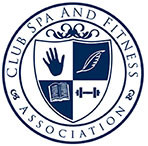Why Fitness Certification Matters
Being a professional in the Fitness industry requires aptitude about fitness and a passion for helping people. If you have both of these qualities, you’ve got the makings for a successful fitness career. However, achieving fitness aptitude takes more than working out in the gym and being physically fit—you need to be educated in the science of fitness. The fastest (and most affordable) way to gain that education comes from engaging in a Personal Trainer Certification Program.
It’s probably no secret to you that the profession of Fitness Training is not regulated by laws that require formal education and certification in order to practice. It’s also no secret that if you want to get a job in a respectable gym or fitness facility, or work for yourself, you’ll need to be certified.
There are many types of certification programs available to earn your Certified Personal Trainer designation—hundreds, in fact. But getting just any certification isn’t your best course of action. Certification programs have varying levels of recognition in the fitness industry, and choosing a certification program must be done wisely.
A legitimate certification program is one that is accredited by a nationally accrediting agency. Accrediting agencies set forth precise standards and requirements that a Fitness Certification Program must meet in order to ensure its certificants are well-equipped to provide health and fitness services to the public. With the certification of a reputable credentialing agency behind your name, you’ll be regarded as a qualified, and quality, candidate to employers and respected by your clients.
Certification programs are inherently similar, but can vary in their curriculum format and complexity, exam protocol, program completion time, cost and more. A well-rounded program will cover a diverse set of health and fitness topics as well as business management practices. Most of the top programs offer some distinct component to help set it apart from the others, whether it be advanced study materials, workshops and webinars, or robust testing. Many of the top credentialing agencies will also offer professional benefits once you’ve earned your certification include things like business management materials, discounts, access to helpful industry resources and help finding employment.
A basic Certified Personal Trainer designation will suffice for employment at most gyms and fitness centers. If you decide you want to further develop your fitness proficiency, however, some certifying agencies offer advanced certification programs as well as specialty certifications. Identifying a specific niche in which you want to practice—and achieving certification in that area—can bode well for you as you compete in an industry that is growing in popularity. In addition, many colleges and universities now offer exercise science degrees. Working toward a degree will open even more doors for your exercise physiology career. In fact, some advanced certifications require at least a Bachelor’s degree as a prerequisite.
One of the great things about choosing a career in fitness training is the relatively short amount of time it takes to learn the materials (i.e. the ins and outs of fitness training) and test for your certification. Most certification programs run six months to a year and cost approximately $500-$1,000. Compared to a degreed program at a college or university, that’s a substantial savings in time and money.
Choosing the right certification program for you doesn’t have to be difficult, but you should do your homework in order to choose the program that will best help you achieve your goals. A good place to start is by reviewing online comparisons of the various credentialing agencies available. If you’ve got your sights set on working in a particular gym or fitness facility, find out what certification programs they prefer (or require) of their instructors. This will help narrow down your options.
Whichever program you choose, remember that when it comes to getting your certification, it pays to take your time. Cramming for a certification exam won’t do you a bit of good if you don’t actually retain the information you gained while studying. And earning your certification won’t mean much if you don’t have the knowledge to support it when you’re training in the field.
As a reminder, it’s also smart to protect your investment in both your education and your finances by purchasing personal Professional Liability Insurance as your career begins to take shape. Read more about the importance of Professional Liability Insurance for fitness trainers in the Helpful Info section of our website.
Customer Feedback
-
Thank you so much for your prompt response. Might I add, Veronica was a delight to work with and her professionalism and attention to detail made this an overall pleasurable experience.

Earl W.




















